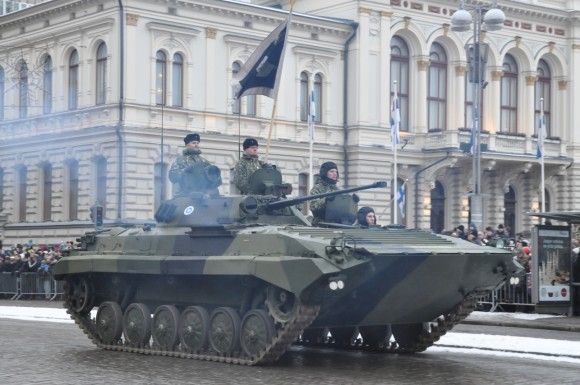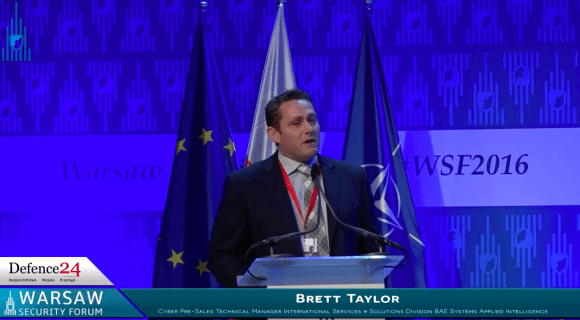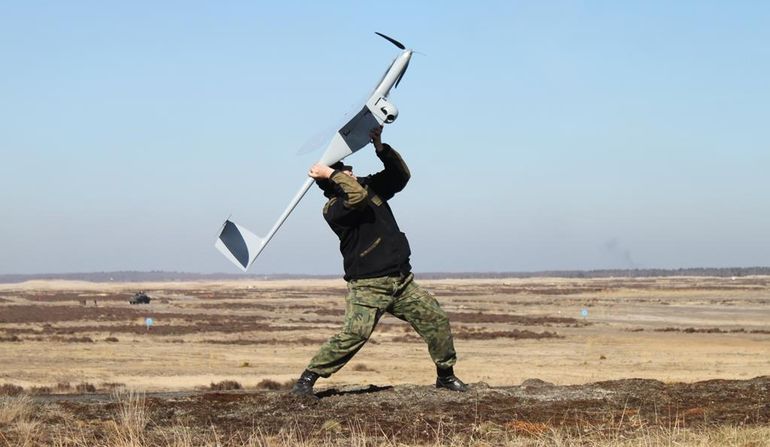Legislation
Polish Ministry of Defence Changes The Procurement Regulations [ANALYSIS]
Decision No. 141/MON issued by the Polish Minister of Defence on 5th July 2017 became valid. The said document is related to the system of procuring, operating and decommissioning of the military equipment implemented by the Armed Forces of the Republic of Poland. Despite the criticism related to the current system, expressed by the leadership of the MoD, the new legal act brings in limited changes to the existing regulations, and it shall not be viewed as a basis for major enhancement of the procurement process related to the equipment for the Polish Armed Forces. However, the main goal may be to get the system to order - as Wojciech Pawłuszko states within his article.
Polish MoD introduces a new decision regulating the armament procurement process
On 6th July 2017, Decision No. 141/MON made by the Head of the Polish Ministry of Defence on 5th July became valid. The decision in question concerns the system of procuring, sustaining and withdrawing the military equipment in the Armed Forces of the Republic of Poland. The aforesaid document has replaced the No. 72/MON decision issued by the Minister of Defence on 25th March 2013, concerning the procurement of military equipment and services for the Armed Forces of the Republic of Poland. However, a question which still remains open is why the Polish Ministry of Defence did not decide solely to amend the existing legal act. The new decision, in its majority, is identical to the regulations that had been valid so far. This concerns mainly the appendices which, mostly, are equivalent to the ones that remained in force until now. The appendices in question define the shape of the following procedures:
-
Urgent operational requirement acquisition procedures, concerning the military equipment
-
Acquisition of new military equipment for the Polish Armed Forces, within the framework of prospective and ongoing requirements,
-
Implementation of R&D works,
-
Procurement of military equipment,
-
Acquisition of new military equipment financed with the use of the aid provided for the Republic of Poland by the US Government, within the framework of the Foreign Military Financing (FMF) programme.
Permissibility of using military equipment acquisition procedures different from the ones contained within the Decision No. 141/MON
It seems that one of the most important changes, when the new decision is compared to the abolished No. 72/MON legal act, is the one related to the exceptions contained within the new No. 141/MON decision. The aforesaid decision states, within § 102 section 1, that at each end every stage and phase of the military equipment acquisition scheme, in justifiable cases, one may use military equipment/services procurement method different from the one defined by Decision No. 141/MON. This may happen particularly for technical, organizational, economic or purpose-related reasons, which may ensure achievement of the assumed goal with a rational character of the utilized methods and means. Such action may take place, in particular, due to:
-
Requested military equipment procurement acquisition deadline, especially in case of the equipment which is not administrated by the command of the Territorial Defence component, but which is still going to be used by those forces,
-
Complexity of the military equipment,
-
Acquisition of military equipment or services closely related to establishment of the required infrastructure which may be used to assemble or ensure operation of the military equipment.
Method of acquiring the military equipment, which would differ from the Decision 141/MON, shall be defined by a decision of the Minister of Defence prepared by the Department of Armament Policy, when the estimated cost of acquiring the given equipment or service exceeds or is equal to the amount of PLN 100 million. Alternatively, the decision may be issued by the MoD Secretary of State, when the estimated services or equipment acquisition cost is lower than PLN 100 million.
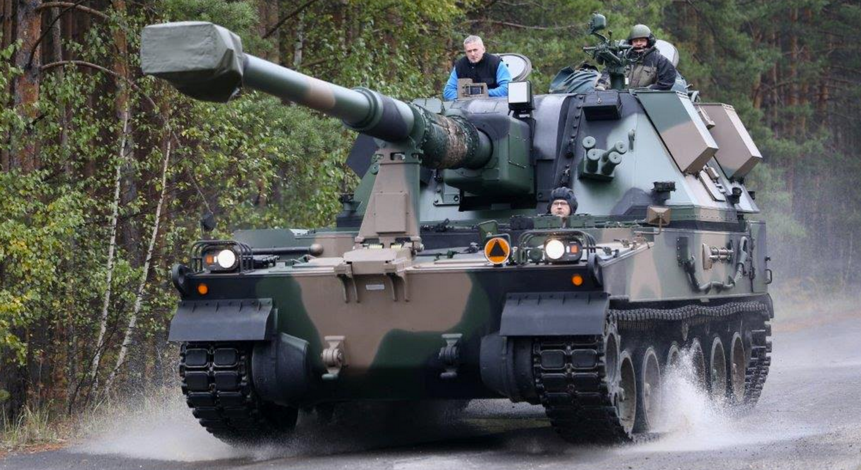
Within the justification of the bill of the decision, the Department of Armament Policy is obliged to present, in particular, all of the actual, legal and substantial premises that would justify the rationality of the proposed means and methods, along with the gained benefits, in comparison with the means and methods contained within Decision No. 141/MON. However, the decision does not specify the “different” profile of acquiring the services or equipment, which creates some doubts.
The Polish Ministry of Defence may be free to choose the procedures of selecting and acquiring the given weapons system, basing its steps solely on the decision prepared by the Department of the Armament Policy. It remains difficult to say, in what way the Polish Ministry of Defence would make use of the provided authority, and whether this would not create a situation in which certain defence companies are favoured, which would disrupt the defence market competition. Perhaps, the implemented mechanism should be specified even further.
Director of the Armament Policy Department among the participants of the armament procurement process
Decision No. 141/MON defines the Director of the Armament Policy Department as a new subject, entity, within the military procurement system. The Director is responsible for the actions that are not included within the scope of competences of other decision-making staff at the Polish Ministry of Defence, in particular:
-
For monitoring the functioning of the military equipment procurement system;
-
For auditing the functioning of the military equipment procurement system;
-
For creating a report on the status of functioning of the military equipment procurement system;
-
For developing a bill of decisions concerning the acquisition of military equipment or services, in mode or in line with rules different from the ones defined by Decision No. 141/MON;
-
For issuing opinions and creating documents in line with the rules of the Decision No. 141/MON;
-
For developing decision drafts, concerning the creation of a group which would carry out military equipment procurement procedure, following an urgent operational requirement.
Moreover, the Director of the Armament Policy Department may ask other organs or entities within the MoD, involved in the procurement process, to provide the available information or documents concerning the functioning of the aforesaid system. Following his requests, heads (directors, commanders, heads) of the individual bodies or MoD’s organizational units provide him with periodic reports covering, partially and completely, the area of the military equipment procurement system. On the basis of the decisions made by the Secretary of State of the Polish Ministry of Defence, the Head of the Armament Policy Department audits the area of the system functioning indicated within the decision.
Then, the audit conclusions are a subject to an opinion issued by the Director of the Armament Policy Department together with the head, director or commander of the MoD’s organizational unit which acts within the audited area, and these conclusions are presented in front of the Secretary of State, along with the relevant recommendations. Moreover, the APD director shall present a report in front of the Deputy Minister of Defence before 30th April each year, concerning the functioning of the military hardware acquisition system within the preceding year, along with proposals regarding the potential points that could be a subject to refinement. The listed responsibilities are only a detailed variant of the existing tasks assigned to the Armament Policy Department Director, resulting from the organizational regulations remaining in force within the Polish Ministry of Defence.
New tasks for other participants of the armament procurement system
Decision No. 141/MON also introduces insignificant changes within the area of the scope of competencies of the remaining participants of the armament procurement chain. Secretary of State at the Polish Ministry of Defence is no longer directing, he is only supervising the functioning of the armament procurement system. Also, he is no longer going to establish or supervise armament programmes. Deputy Minister, on his own, or following a request issued by the Chief of the General Staff or Chief of the Armament Inspectorate, may request repetition of a part or of the whole analytical-conceptual phase within the procurement process.
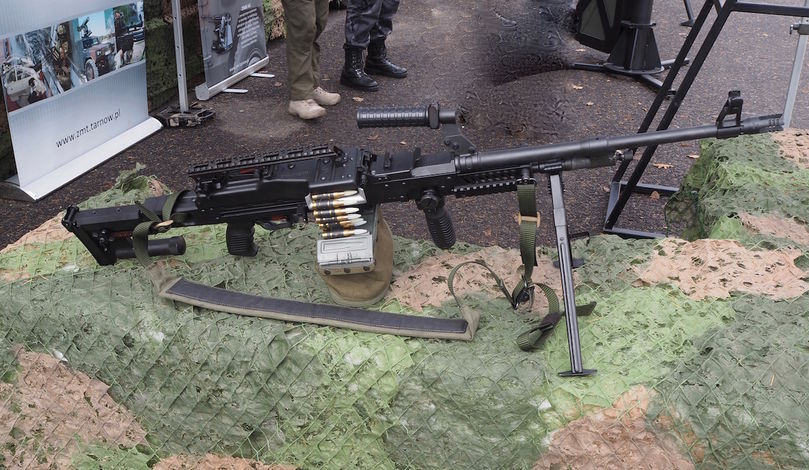
Here, we are referring particularly to the cases, when the technical concept proposed within the feasibility study does not make it possible to obtain abilities contained within the operational or tactical-technical requirements, or, which is a novelty, the assessment according to which the basic national security interest emerges, in line with the regulations concerning the detailed procedures adopted within the scope of qualifying the orders and assessing the emergence of the basic national security interest, has an impact on the content of the documents utilized within the analytical-conceptual phase.
On the other hand, Chief of the General Staff of the Polish Army does not establish the operational programmes, only requesting establishment of programmes as such instead. Furthermore, the Head of the Armament Inspectorate would no longer initiate establishment of armament procurement programmes, he is also not going to approve the “Armament programme charter”, not being responsible for appointing the directors of the armament programmes and for implementation of those. The administrator of the given armament system, from now on, shall initiate or issue an opinion on proposals of acquisition of military equipment from the resources of other armies or in a form of a gift, he shall also settle the points that are disputable, within the scope of requirements for the equipment being acquired.
The scope of competency has been greatly expanded for the central organs responsible for logistics. According to the decision No. 141/MON, the listed entities:
-
Define the rules and norms for logistical support for the military equipment, they shall also define the operational use norms, with an exception of the ultimate target use norms;
-
Plan and organize the support and logistical security for the military equipment, with the same actions applicable to the training activities for the technical staff;
-
Implement the tasks arising on the grounds of the procedures adopted within the scope of acquiring, introducing, operating and withdrawing the military equipment from the Armed Forces, in line with the rules defined by the No. 141/MON decision and other, separate regulations;
-
On their own, and in collaboration with the administrator, or following his request, organize the process of modifying the military equipment, also developing and arranging, with the relevant units or organizational sections of the Polish MoD involved in the process, the modification technical requirements.
The central organs responsible for logistics, working together with the relevant administrator, shall also define the rules for using the acquired military equipment, taking the provisions of the No. 141/MON decision into account, in the area of operational use concerning the military equipment, along with the relevant doctrines, operational norms, technical documentation of using and securing the military equipment and orders and guidelines issued by the relevant decision-making persons and entities and organizational bodies of the MoD.
New area of competency for the Head of the Armed Forces Support Inspectorate
According to the new decision made by the Polish Ministry of Defence, Head of the Armed Forces Support Inspectorate would define, in collaboration with the Armament Policy Department, the procedure for acquiring any parts, components and assemblies of the military equipment, or material resources required for using the said equipment, and rendering of the operational use- and maintenance-related services. The aforesaid procedure is to include acquisition of the listed elements within the scope of the Foreign Military Sales procedure, financed via the financial aid assets granted by the US Government within the framework of the Foreign Military Finance programme, or via the budgetary assets remaining at the disposal of the Polish MoD.
The Procedure shall, particularly, take into account the rules of acquiring any parts, components or assemblies of military equipment or technical material resources for that equipment, as well as operation and maintenance-related deliveries and services, including:
-
Proper character and actions undertaken by the participants of the procurement process;
-
Definition of requirements for the above, especially technical parameters and operational requirements, in line with the needs of the Armed Forces;
- Provisions of the decisions concerning the services acquisition.
The Decision No. 141/MON also includes a new task assigned to the I3TO Inspectorate for Implementation of Innovative Defence Technologies. I3TO, on the basis of analyses and identified needs, shall submit a request for the relevant body within the MoD, related to implementation of research or development works for the purpose of defining the operational requirements ascribable to the given piece of military hardware, also when the work is implemented outside the MoD, according to the mode of the regulations contained within the decisions issued by the Defence Minister, concerning the research or development works.
The new decisions introduces several organizational changes
The new legal act covers a much wider subject area. Its regulations define the system for procurement of military equipment. The Act’s scope includes the military equipment procurement process, also applicable to any parts, components or assemblies thereof, technical means associated to the equipment and services, as well as deliveries, services and construction works directly related to the aforesaid equipment. Decision No. 72/MON was limited to exclusive regulation of the armament procurement itself. Nonetheless, the procedures forming the current system remain, mostly, unchanged, hence expanding the subject scope of the decision has mostly a linguistic dimension.
Decision No. 141/MON also defines the “technical dialogue” term. The aforesaid document refers the reader to the regulations of the Public Procurement Law Act which states that prior to initiation of a procurement procedure, the Ordering Party has a right of informing the potential contractors about the plans and expectations related to the order, in particular, the Ordering Party may carry out a technical dialogue, reaching out to experts, public authority organs or contractors to have them advise or provide information, within the scope required to prepare a description of the subject of the agreement, along with terms of reference, or to define the agreement conditions. The technical dialogue shall be carried out in a way ensuring a fair competition and equal treatment of the potential contractors and of the solutions they are offering.
The new decision introduces certain changes within the scope of preparation of a feasibility study by the Armament Inspectorate, with that document containing the information pertaining to the method of acquiring the given weapons system. The task-time analysis of any procurement process created for the purpose of the aforesaid study also includes the analysis related to obtaining the relevant equipment-related infrastructure or services, also referring to the possible schedule of deliveries of the equipment and the schedule of creating the infrastructure or services, along with a proposal related to financing of the tasks during the individual fiscal years.
Within the framework of preparing the study, recommendations pertaining to the military equipment acquisition methods would also cover the issue of obtaining the infrastructure closely tied to the equipment which is being acquired, destined to be used for the purpose of assembling or operating the said equipment and the remaining infrastructure. The feasibility study will not include the conclusions gathered during the analysis related to qualification of tasks included among the recommendations covering the procurement method, seen as tasks, for which the basic national security interest emerges.
Alongside the cases that had been defined within Decision No. 72/MON, Decision No. 141/MON shall not be applied for procurement of military equipment and services, for which the National Centre of Cryptology acts as the administrator, for the purpose of providing the required level of ICT security within the MoD networks and within the networks used by the Polish Armed Forces.
Decision No. 141/MON also shall not be applicable in case of the military equipment or services, for which the Command of the Territorial Defence component of the Polish Army acts as the Administrator, on the basis of the regulations included within the decision related to procurement of military hardware for the Territorial Defence forces - Decision No. 92/MON issued by the Minister of Defence on 28th April 2017, covering the issue of acquiring military equipment for the Territorial Defence Forces. The decision No. 141/MON further specifies the issue, stating that in case of pursuing steps to meet urgent operational requirements of the Polish Armed Forces, this cannot be done through implementation of a development work programme.
Moreover, a new lifecycle phase has been added for the military equipment - the withdrawal thereof. The new phase includes two stages: a) removal of the equipment from the operational environment and b) liquidation. Before the above provisions became reality, the armament had been usually decommissioned within the framework of the operational use phase.
Liquidation of the staff-based information resource of the Polish Ministry of Defence, and abolishment of the option to organize meetings concerning the military equipment
Decision No. 141/MON has got rid of the information resources of the Polish Ministry of Defence including the natural or legal persons relevant and qualified to carry out research and issue opinions requiring specialized knowledge.
Secretary of State could have had work as such delegated to such persons at any stage of the armament procurement process in justified cases. It is difficult to assess how often the former, and the current leadership of the Polish Ministry of Defence has been using this information resource, and whether such form of substantial support for the decision-makers working at the MoD was effective in any way.
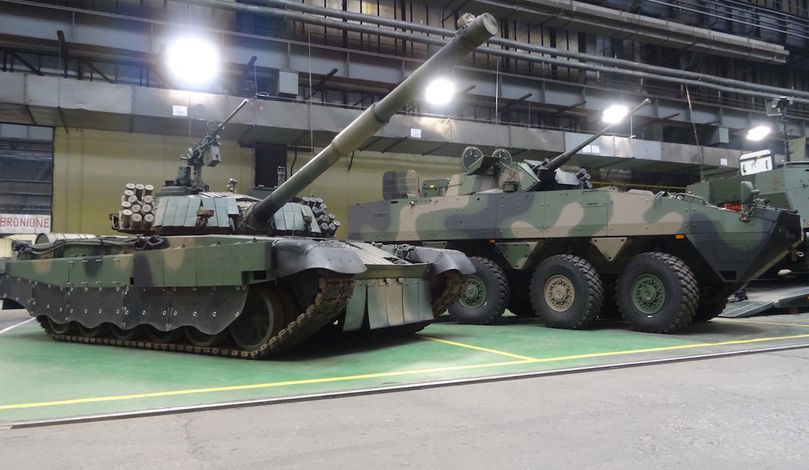
What is more, the new decision also abolished the option of organizing meetings (conferences, demonstrations, presentations), related to military equipment, for the purpose of exchanging the experiences and knowledge concerning the military hardware. Such initiatives could have seen involvement on the part of domestic and foreign entities and institutions, whereas in latter case a written consent of the head (director, commander, head) of the relevant body or organizational department being issued. Such meeting could also involve employees of such body and soldiers. It may be assumed that obtaining the knowledge related to armament systems is now going to be limited solely to the technical dialogues.
Status of the matters unsettled so far
According to the Decision No. 141/MON, the matters unsettled and inconclusive before the day it was issued are going to be implemented on the basis of the regulations remaining in force so far, but no longer than until the phase or stage of implementation is finalized. Moreover, following a justified request submitted by the main participant of the procurement system (e.g. Chief of the General Staff of the Polish Army or Head of the Armament Inspectorate), the Secretary of State at the Polish Ministry of Defence may issue a consent to implement the open and not finalized issues before the day when the decision is valid, in line with the former legal regulations.
New regulations do not reform the armament procurement system
Decision No. 141/MON is not a breakthrough, when it comes to reforming of the armament procurement scheme in the Polish Army, even though the current leadership of the Ministry has often criticized the system for being too complicated or non-transparent. The new regulations have a purpose to create order. The decision does not introduce in-depth changes within the procurement procedures themselves, even despite the fact that the Strategic Defence Review presented in May 2017, within its confidential portion, undoubtedly included a number of conclusions related to condition of the Polish Armed Forces’ armament procurement scheme.
One may also risk and state that only an institutional reform tied to a complex change of procurement regulations, also related to adopting a defence procurement act which would take the specific nature of defence industry into account, could create a qualitative transformation, enhancing the effectiveness of procuring the military equipment for the Polish Armed Forces.
Wojciech Pawłuszko

